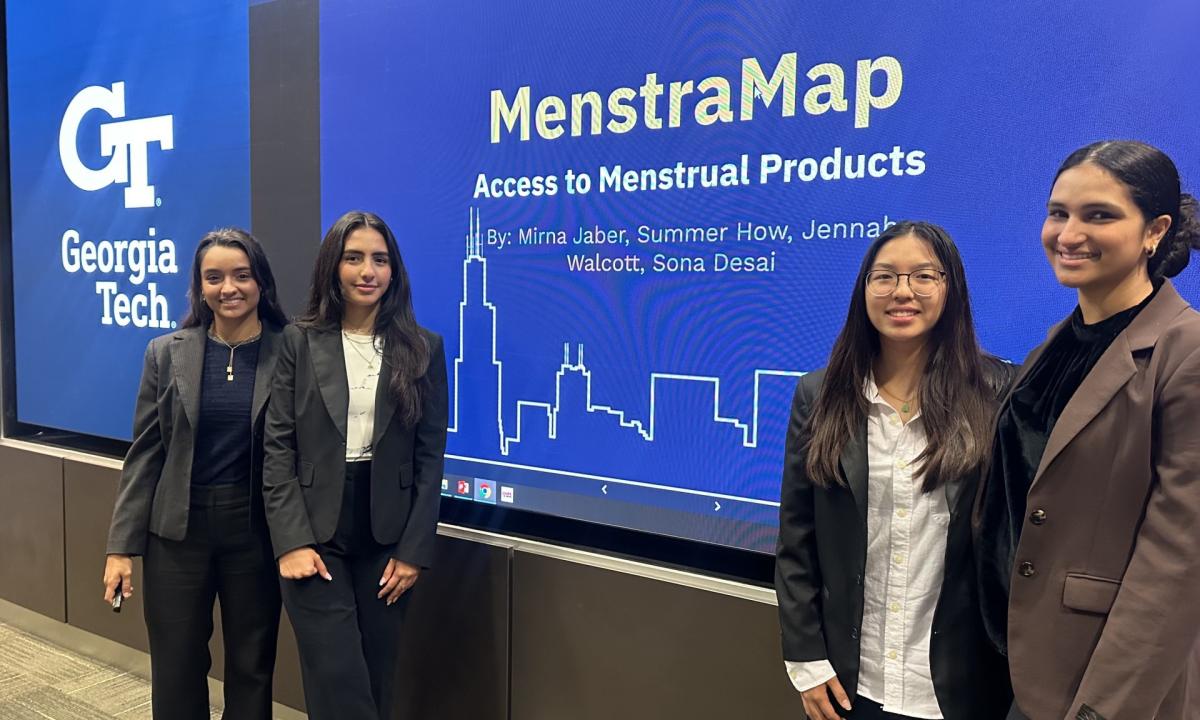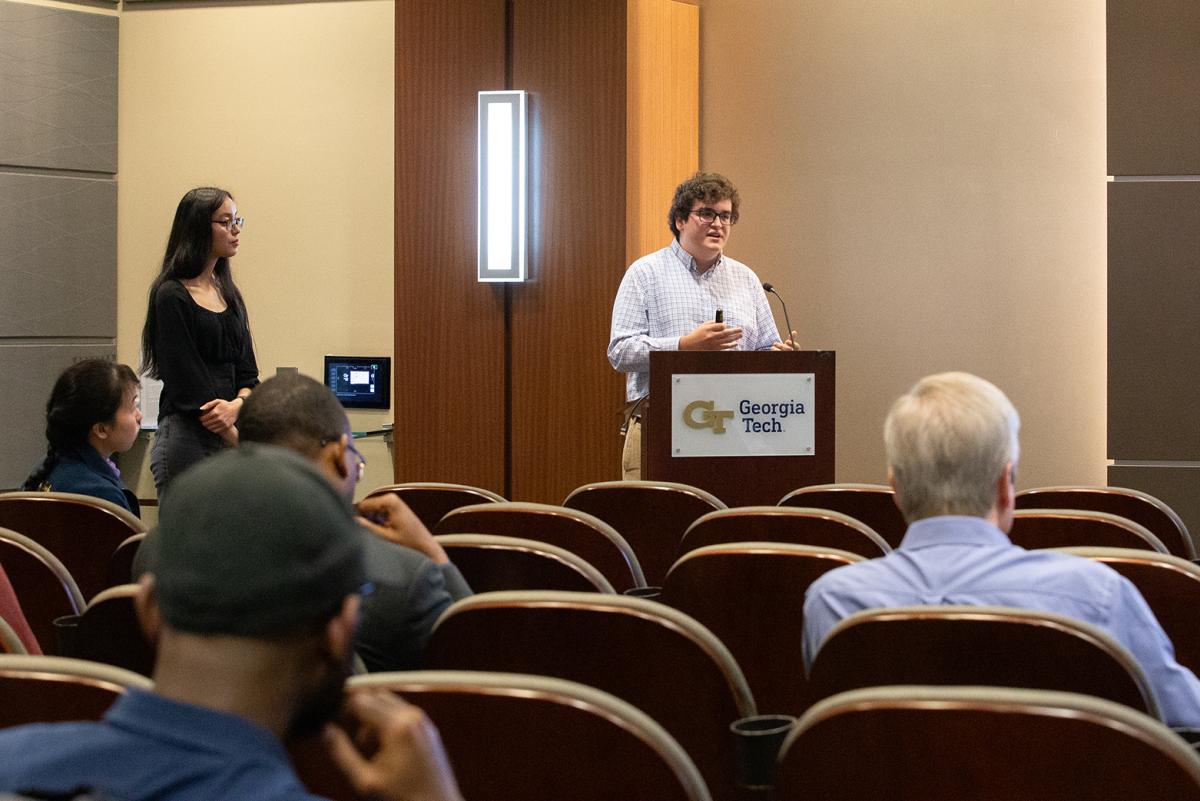Fostering Access & Innovation ‘Round Tech (FAIR Tech) Competition
Hosted by the College of Engineering Community and Culture Council
The College of Engineering’s FAIR Tech Competition encourages students to apply engineering principles, creativity, and problem-solving skills to enhance the Georgia Tech experience. FAIR Tech’s goal is to support innovative ideas that improve accessibility, usability, and engagement across campus—making a meaningful impact for students, faculty, and staff.
The competition is aligned with the Order of the Engineer, a national initiative within the engineering profession that includes the Obligation of an Engineer oath. Those who take the oath make a lifelong pledge to serve humanity with pride, purpose and passion, while engineering solutions for a better tomorrow.
The FAIR Tech Competition also supports Georgia Tech's commitment to Progress and Service and making a transformative impact locally and around the world.

(text and background only visible when logged in)
Overview
Students—either individually or in teams—are invited to design and develop an innovative concept (e.g., policy, process, service, organization, prototype, or facility) that enhances the Georgia Tech environment or experience.
The College encourages participants to think broadly about ways to make campus life more effective, efficient, and welcoming for the Tech community.
Examples may include solutions for wheelchair accessibility in classrooms with stadium seating or policy proposals that address barriers to student participation in programs.
For the Fall 2025 competition, students are asked to submit proposals that:
- Identify a campus problem or challenge
- Describe its impact on the Georgia Tech community
- Present an execution plan with clear, actionable steps
Finalists will receive up to $1,000 to implement their projects in the spring semester and will present outcomes to the College of Engineering leadership team. Teams are encouraged to include a College of Engineering faculty or staff mentor.
(text and background only visible when logged in)

Timeline
Student entries (individual or team) must register by
- October 31, 2025: Registration deadline
- November 21, 2025: Deadline to submit preliminary proposals to receive feedback (optional)
- December 15, 2025: Final proposals due
- January 12, 2026: Finalists announced
- End of April: Finalist presentations and winners announced
(text and background only visible when logged in)
(text and background only visible when logged in)
Eligibility
All entrants must meet the following criteria:
- Submissions may be made by individuals or teams.
- All participants must be currently enrolled undergraduate or graduate students at Georgia Tech.
- Individual entrants must be enrolled in an Engineering major.
- For team submissions, a majority of members must be enrolled in Engineering majors.
Proposals
Students must submit a full proposal that includes the following:
- Maximum of 5 pages, plus 1 page for budget and cost justification
- Proposal should include:
- A summary of the problem being addressed
- The issue’s impact on the Georgia Tech community
- A description of the proposed innovation and plan to prototype or pilot it in the spring semester
- Specific details on how success will be evaluated (e.g., data, surveys, stakeholder feedback)
Execution and Reporting
Finalist teams will receive funding and are expected to report on their outcomes:
- Each finalist will be awarded up to $1,000 to execute their proposal
- Finalists will deliver 15-minute presentations to the College of Engineering leadership team, showcasing their projects and results
Awards
- First Place: $2,000 prize and lunch with the dean
- Second Place: $1,000 prize
- Third Place: $500 prize
(text and background only visible when logged in)